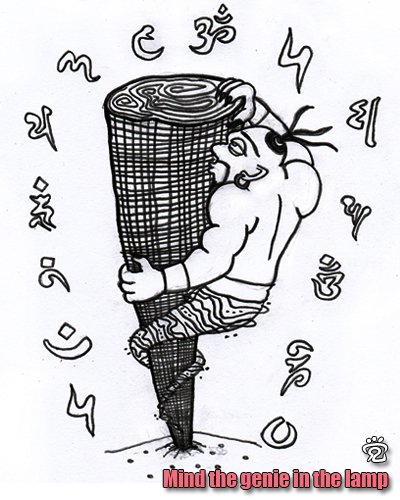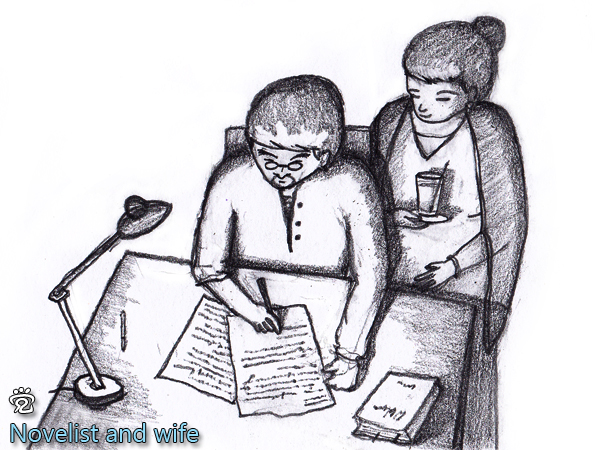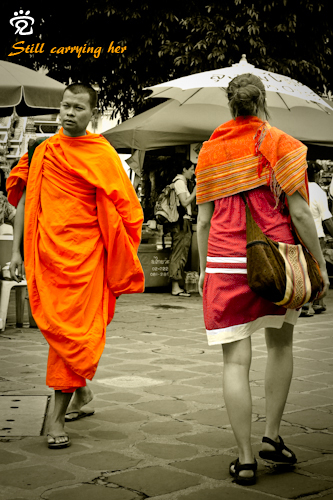
Mind the genie in the lamp - by CJ
There once was a very poor man, who woke up hungry with only 1 rupee left in his pocket. He decides to go to the market and see if his rupee can buy him some left over fruit. At the market he meets a fancy clothed man behind a table with a beautiful oil lamp on it, and a sign that reads “1 rupee”.
The poor man can’t believe his eyes, and asks the man what the catch is.
“It’s true, the lamp only costs 1 rupee,” the man says.
And he explains that in the lamp there lives a genie, who fulfills all your desires.
“Then why do you sell it?”, the poor man wants to know.
“Well, the genie is always active and rather impatient”, it is explained. “And if you don’t pay attention to him, he’ll start taking things away again”.
“Well OK”, the poor man says. “Since I don’t have much to lose I will buy it from you”.
When he arrives back home, he rubs the lamp and the genie appears. “How can I serve you, master?”, he asks.
“Prepare me a meal worthy of a king”, the poor man commands.
Within a second the genie serves an opulous meal with 87 courses.
The poor man is delighted, but when he wants to start eating, the genie asks again – “And how can I serve you master?”
Keeping in mind that the genie can also take away all the goodies, the poor man commands: “Build me a beautiful castle, suitable for a maharadja!”
Only a few seconds pass by, and the man now finds himself in a beautiful palace. He likes to explore it, but there comes the genie again, asking “How can I serve you, master?”
Every wish is immediately fulfilled, and when ignored, the genie takes away everything.
The poor man is annoyed and goes to the village sage, where he explains his problem.
After a silent conversation, the poor man steps to the genie and says: ‘Genie, build me a large pole and stick it in the ground”.
The genie immediately builds a pole and sticks it in the ground.
“Now genie, I want you to climb up and down the pole, over and over again”.
The genie starts climbing right away.
And now the man has time to eat his meal, explore his palace and do other things.
When he and the sage go to see what the genie is doing, they see that he has fallen asleep next to the pole.
“And so it is with the thinking genie of every man”, explains the sage.
“It is restless in its desire to satisfy every desire, and fragments our being.
The pole is a tool called a ‘mantra’.
“By repeating it over and over again, our restless mind is kept busy until it gets so bored that it falls asleep.
And this way our true self can enjoy the world.”
[source: http://go.webassistant.com/wa/upload/users/u1000057/workspaces/30stories/#genie]







